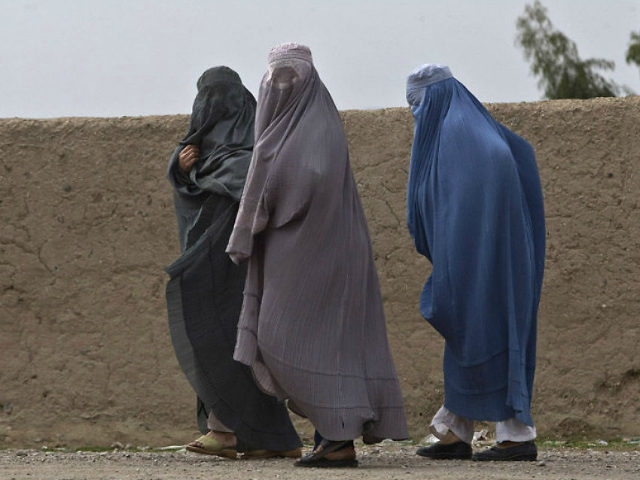Local officials in the southern Afghan province of Kandahar, long considered to be the birthplace of the Taliban, have reportedly banned radio stations from airing songs performed by women, according to various media outlets in the region.
The restriction, which has drawn the ire of some of the 11 radio stations believed to be operating in the province, was imposed by Kandahar’s Ministry of Information and Culture, reports TOLO News.
Some radio station personalities expressed concern about the decision, according to TOLO.
“Local officials in Kandahar have verbally ordered radio channels in the province to stop airing female singers’ songs,” said Agha Sher Minar, head of Kandahar’s Wranga Radio.
“The order by Kandahar officials will affect women’s roles in other sectors as well,” also said Sana, a young girl who hosts social programs at a local radio station.
Meanwhile, a number of local journalists noted that the ban violates freedom of speech, TOLO reports.
“We urge the relevant organizations to defend journalists’ rights to react in this regard and push the relevant offices to cancel the order,” declared Kandahar-based reporter Nasibullah Popal.
“The decision by Kandahar officials is a violation of the freedom of speech and, in fact, it is silencing the voice of freedom,” added journalist Abdulqawi Harooni.
Media supporters across Afghanistan have been outraged by the provincial government’s order, Khaama Press (KP) reports.
The country’s “NAI organization which supports open media in Afghanistan reacted towards the move, saying no governmental or non-governmental organizations have the right to ban women’s songs in the media.”
According to NAI, the local government’s decision violates article 34 of the Afghanistan constitution and national public media law.
The national “Ministry of Information and Culture has also voiced concerns regarding the censorship of women’s songs by the local authorities in Kandahar saying such moves are against the enforced laws of the country,” notes KP.
TOLO points out that Kandahar’s version of the Ministry of Information and Culture has denied imposing the ban.
Hazrat Wali Hotak, the ministry’s director, is quoted as saying that “a number of radio channels in Kandahar are not acceptable and that they had warned them to bring changes to their programs; otherwise, they will face legal action by local authorities.”
Kandahar lies along the Pakistan border and next to the Afghan province of Helmand. Both Kandahar and Helmand, together the deadliest region for U.S.-led coalition forces, have long been considered Taliban strongholds.
The Afghan terrorist group’s movement was reportedly born in Kandahar’s Panjwai district. Taliban jihadists reportedly banned music and television in Afghanistan until they were dethroned by U.S.-led troops in 2001.
Although U.S. and international forces failed to completely clear out the Taliban from the Panjwai, Afghan security forces, often criticized for lacking the capability to take on the country’s enemies, have recently succeeded in doing so, reports The National from the United Arab Emirates (UAE).
It is one of the few success stories involving the U.S.-trained Afghan forces, which include military and police units.
“Panjwai was one of the centerpieces of US president Barack Obama’s 2009 troop surge ambitiously aimed at crushing the Taliban, but the southern district soon became a poster child of the failed intervention,” notes the report.
“The Taliban are now out of sight in the district of Kandahar province, pomegranate orchards stand on fields once awash with landmines, and poppy farms that boosted militant coffers are just a memory,” it adds.
The National acknowledges that poppy-rich Helmand, Afghanistan’s largest province, is near collapse at the hands of the Taliban.

COMMENTS
Please let us know if you're having issues with commenting.